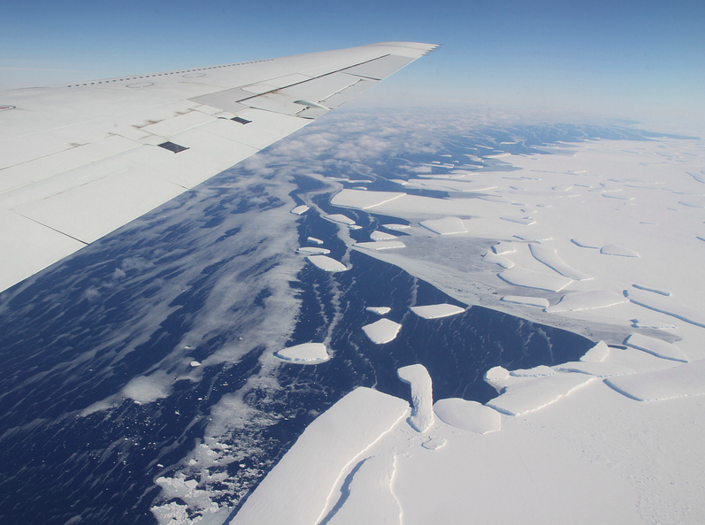New Research Suggests Drastic Sea Level Rise Could Happen Much Sooner Than Previously Predicted
By:
Children being born today could suffer the devastating consequences of rising sea levels caused by climate change, a study published in the journal Nature reports.
According to the study — which was conducted by researchers at PennState and UMass, Amherst, melted ice from the massive West Antarctic ice sheet could cause sea levels to rise by about twice as much as the previous worst-case prediction made by the United Nations just three years ago.
Moreover, the scenario could play out in the coming decades — not centuries. Not surprisingly, the study links the potential disaster to man-made emissions.
"The startling high-end estimate arises from unabated emissions and previously underappreciated mechanisms: ice-fracturing by surface meltwater and collapse of large ice cliffs," according to the study.
The disintegration of large ice cliffs, for instance, could acts as a significant contributor, alongside already-melting ice caps caused by warmer air and sea temperatures.
The researchers used an updated digital model of Antarctica, which incorporated a period of historic high sea levels, to build a new picture of how stable the continent's vast ice sheet is, and what its contributions to global sea level rise might look like were it to break up into smaller pieces.
The study found that if greenhouse gas emissions don't slow down, the West Antartic ice sheet — which is the size of Mexico — could break into smaller pieces, contributing enough water to raise sea levels as much as three feet by 2100.
Combined with global ice melt, the massive sheet could contribute to as much as five to six feet in sea level rise by the same year, the researchers found.
 NASA/Flickr - flickr.com
NASA/Flickr - flickr.com
After that point, things could go downhill, and fast. As the New York Times noted:
"The situation would grow far worse beyond 2100, the researchers found, with the rise of the sea exceeding a pace of a foot per decade by the middle of the 22nd century. "
The researchers said that the outcomes were far from certain, but they could pose serious dangers to coastal areas.
"This could spell disaster for many low-lying cities. For example, Boston could see more than [about five feet] of sea-level rise in the next 100 years," Robert DeConto, a climate scientist at the University of Massachusetts Amherst who worked on the study, said in a statement.
Still, the study was not entirely without a positive possible outcome. The researchers also found that the Antarctic ice sheet had the potential to contribute "almost nothing" to sea level rise.
"The low end shows that a scenario of strong climate mitigation can radically reduce societal exposure to higher sea levels," the study found.
